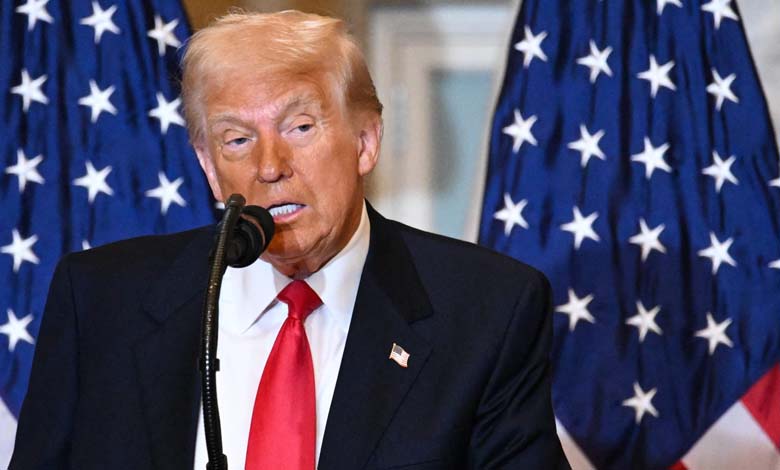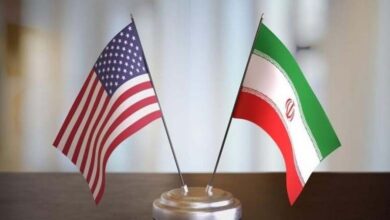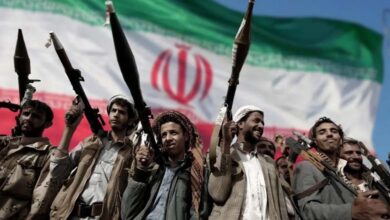When the “Riviera” Clashes with Resilience: Trump’s Vision for Gaza Between Benefit and Identity

For decades, the issue of Gaza has been at the heart of regional and international conflicts, intertwining political, humanitarian, and economic dimensions.
The Washington Institute for Near East Policy considers former U.S. President Donald Trump’s vision for rehabilitating Gaza to be purely economic, disregarding the political and historical aspects of the Palestinian cause.
The plan involves relocating Gaza’s two million residents to other countries while transforming the area into the “Riviera of the Middle East” to attract investors and inhabitants from around the world.
-
Gaza and Trump’s Ambitions… A “Fragile” Truce Struggling to Hold
-
10 Countries and 2 Regions: The “Alternative Homelands” Proposed by Trump and Israel for Gaza Residents
According to Trump’s statements, Palestinians would not be allowed to return, while his administration officials described the displacement as “temporary” or “transitional.” The U.S. would oversee Gaza’s reconstruction, with other countries funding it.
Widespread Palestinian Rejection
In the article, Naomi Newman, a visiting fellow at the Washington Institute for Near East Policy and an expert on Palestinian affairs, states that Trump‘s vision has been categorically rejected by Palestinians. Despite their bitter disagreements on other issues, both the Palestinian Authority and Hamas have declared that they would not accept any arrangements that contradict the “right of return.”
-
Gaza and the Ceasefire: “Positive” Signals Racing against Trump’s “Hell”
-
Third Anniversary of the War: Ukraine Caught Between Frontline Anxiety and Political Concerns
Palestinian Authority President Mahmoud Abbas described the plan as a “serious violation of international law” and swiftly coordinated with Arab nations to thwart it. Hamas also affirmed that it would not permit “ethnic cleansing.”
At the popular level, the plan was met with a mix of shock and anger, as most Palestinians viewed it as an attempt to repeat the “Nakba” of 1948. Palestinian commentators harshly criticized the plan, questioning why Trump did not offer the United States as a destination for Palestinian migration. Others expressed outrage at what they saw as an “American-Israeli conspiracy” aimed at erasing their national identity.
-
Billionaire, Party, and Politics… Trump’s Shadow Appears in Australia
-
Trump’s Gaza Storm: Arab Initiative Seeks an Alternative to Halt Forced Displacement
Economic Entities
According to Newman, who previously served as head of the research unit at Israel’s Security Agency (“Shin Bet”) and worked in the Israeli Ministry of Foreign Affairs, Trump’s proposal—comprising a set of broad principles rather than a detailed plan—reflects his fundamental approach to political affairs.
“As a businessman, Trump views individuals as economic entities that prioritize tangible personal gains—such as prosperity—over abstract collective goals like national independence, cultural identity, or religious affiliation,” she explained.
-
Fifth Prisoner Exchange: Messages to Trump and Netanyahu
-
Hamas and Israel Exert Pressure on Each Other Ahead of the Fifth Hostage Release
“This perspective is also evident in his proposals regarding Greenland, Canada, and the Panama Canal, where he replaces the political concept of ‘sovereignty’ with the economic term ‘ownership,’ treating land as if it were real estate available for sale and purchase.”
From this standpoint, offering Palestinians material benefits to encourage them to abandon their national narrative is an attempt to promote what is known as “economic peace.” However, this approach can only be successfully implemented between sovereign states, where neither party is required to relinquish essential elements of its identity in exchange for economic gains.
-
What is the Muslim Brotherhood’s stance on Trump’s statements regarding the displacement of Palestinians?
-
Trump: Palestinians Have No Choice but to Leave Gaza
Forced Migration Policies
The author also points out that the idea of relocating Palestinians is not new; it has been part of Israeli strategy since 1967. Studies indicate that Israel has encouraged Palestinian migration to areas outside its control, such as Latin America and the Gulf states, and has explored scenarios for resettling Gaza’s population in other countries.
Despite Israeli efforts, these policies have not been particularly successful, with only a limited number of Palestinians leaving. However, economic and political factors have led to significant emigration over the past decades. Estimates suggest that between 250,000 and 350,000 Palestinians left Gaza from Hamas’s takeover in 2007 until October 2023. Additionally, between 115,000 and 135,000 more departed following the October 7, 2023, attack, before the closure of the Rafah crossing in May 2024.
-
Trump Pressures Egypt to ‘Hold Hamas Accountable’
-
The Joy of Return and the Pain of Separation: Mixed Emotions for Northern Gaza Residents
A survey conducted in September 2023 revealed that one-third of Gaza’s residents and one-fifth of those in the West Bank were considering migration due to economic, political, or security reasons. Turkey is one of the primary destinations for Palestinian migrants, with many seeking to reach Europe, Canada, the United States, or Qatar.
Proposed Alternatives
According to the article, from an Arab perspective, Trump’s plan lacks two key elements: first, keeping Palestinians in Gaza to demonstrate the feasibility of its rehabilitation; and second, linking the plan to a political process that ultimately leads to the establishment of a Palestinian state.
-
Return that Defies “Nakba”: Residents of Northern Gaza between the Silence of the Rubble and the Clamor of Memory
-
Between the North and the South: Thousands of Palestinians and Lebanese Trapped by the Same Obstacle
Arab states aim to show their willingness to contribute to Gaza’s reconstruction by providing financial, engineering, and security aid in the hope of persuading Washington to abandon its plan.
Newman argues that Trump’s vision reflects a pragmatic economic approach, assuming that Palestinians might migrate if the right conditions—such as financial incentives and job opportunities—are available. However, the idea of their forced displacement as part of an official political plan, especially one that prevents their return, remains unlikely due to Palestinians’ steadfast commitment to their rights and national identity.
She concludes that, in the absence of a clear Israeli plan for “the day after” in Gaza, this vision leaves room for attempts to impose a new reality. However, Palestinian resilience will ultimately remain a crucial factor in thwarting any initiative aimed at reshaping their national identity.
-
Gaza Ceasefire in Its Fourth Day: Doubts, Uncertainty, and Terrifying Gaps
-
Gaza Reconstruction Will Require Billions of Dollars
-
Back to the Ruins in Gaza: When Rubble Becomes a Homeland and Memories a Shelter












